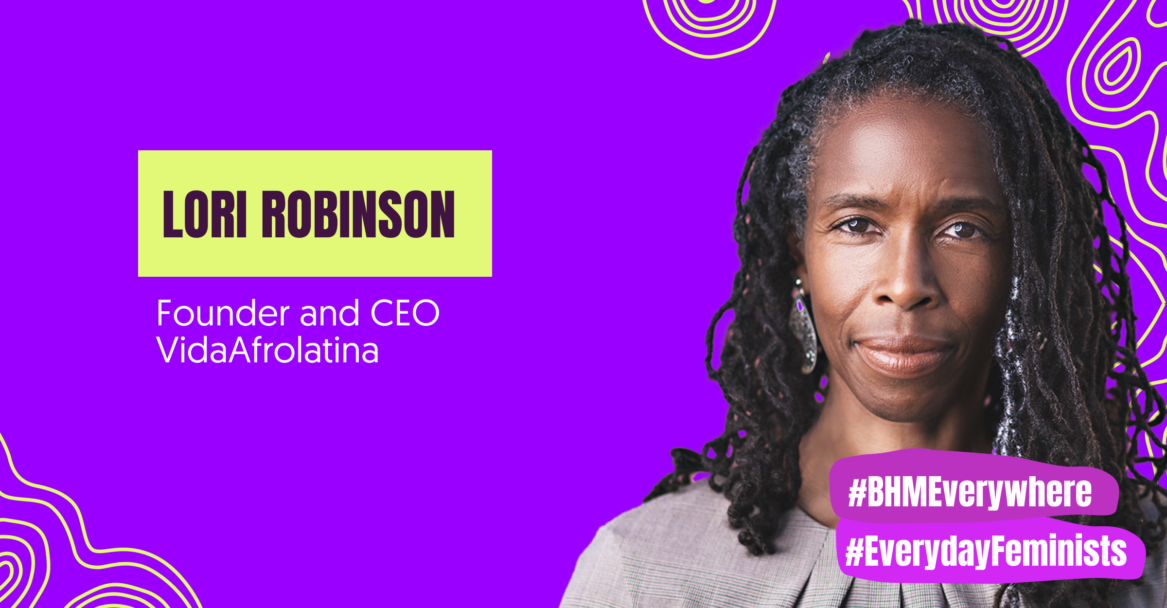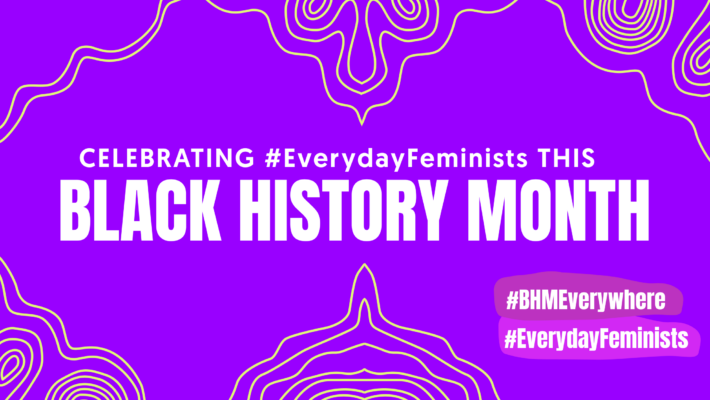Lori Robinson

This Black History Month, we interviewed Black leaders in philanthropy, development, and global health from across the world who are showing up, shifting power, and putting solidarity into practice across borders. Our movements are bolder, healthier, and better resourced because of #EverydayFeminists working to reshape these sectors from within. Explore the entire campaign, and join us in lifting up the people and organizations across the world who center Black freedom, Black joy, and Black dignity every day.
Lori Robinson is the founder and executive director of VidaAfrolatina, the emerging international women’s fund that mobilizes resources and connects them with Black and Afro-descendant women-led organizations in Latin America that address sexual violence. A bilingual African American, she worked as a journalist for 25 years and is the author of I Will Survive: The African-American Guide to Healing from Sexual Assault and Abuse.
The roots of international development and philanthropy go back to colonial times—and the sector still reflects those dynamics. What do you see as the future of philanthropy and international development?
Ultimately, the economic and socio-political systems that continue to exploit and harm Global South communities and nations must be remade to produce equity for all and to restore the earth. The future of philanthropy will be one in which partnering with movements to achieve and maintain a just, sustainable world will be the norm. The practices of trust-based grantmaking will become standard operating procedure throughout the sector.
What are the main actions that the sector needs to take to change past practices that are the result of colonialism, patriarchy, and racism?
This sector must acknowledge the origin of its resources and it must redefine itself. Instead of charitable giving or altruism, philanthropy’s role should be understood as returning resources and power extracted from communities over centuries to those communities. The sector should see itself as a pathway toward holistic, restorative justice.
Philanthropy should reconstitute itself. People from within the communities that have been harmed, and that will be impacted by grantmaking, must become the sector’s leaders and practitioners.
Instead of charitable giving or altruism, philanthropy’s role should be understood as returning resources and power extracted from communities over centuries to those communities.Lori RobinsonFounder and CEO of VidaAfrolatina
Solidarity is something we talk about a lot at Global Fund for Women, and in the philanthropy sector. How do we put survivor-centered solidarity into practice around the world?
We can put survivor-centered solidarity into practice by trusting our partners to set their own objectives, strategies, and definitions of success. Traditional grant makers can relinquish power and embrace their partners’ self-determination. We can standardize participatory processes. We can champion survivor-led movement building, including cross-movement building.
I’m excited to share the work that VidaAfrolatina is doing to center Black and Afro-descendent women and to contribute to a shift in power through participatory grantmaking. We recognize that sexual violence is an issue of both gender justice and racial justice. Our model is designed for women at the intersection of systemic racism and gender discrimination to determine their own solutions.
What would you like our audience to know more about for Black History Month?
Only 5 percent of Africans kidnapped and brought to the Americas during the transatlantic slave trade were brought to the United States. Approximately 95 percent were brought to Latin America and the Caribbean, with the vast majority enslaved in Brazil. Today about one-third of the region’s population is of African descent. While Black cultural contributions are celebrated, Black people in Latin America are widely invisibilized and marginalized. To understand the western hemisphere, it is imperative for people to learn about Black communities’ historic and contemporary realities and legacies of resistance throughout the Latin American and Caribbean region.
What is a first step that people can take to be an everyday feminist?
No matter your current level of awareness, everyone can commit to learning more about gender discrimination and inequality, particularly within your specific cultural context. Examine and acknowledge your own attitudes and implicit bias. Seek out learning opportunities—conversations, books, films, podcasts—with an open mind.
GET SOCIAL WITH US
Join us as we sharing Black history around the world that features the people and organizations who center Black freedom, Black joy, and Black dignity every day.
We’re most active here. Follow us to be part of timely conversations.
The best place to show your support for gender justice activists around the world.
Where we share how we see the world.
